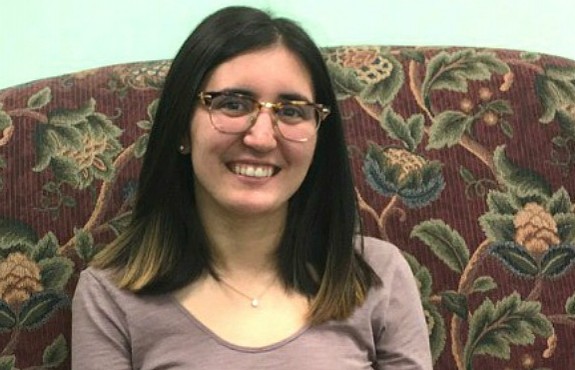
Writing Center Consultants Help Students Upgrade Essays

For many students, writing can be daunting. Charlotte Smithson ’19, a Writing Center Consultant, Liaison, and Manager, hopes to change their perceptions. “It’s really cool to see what different people bring to a text,” she says. “A lot of people view the Writing Center as a place for proofreading, but people also want to know if their argument makes sense.”
Although the process for helping each individual student with their writing is unique, Writing Center Consultants and Liaisons follow a basic “global to local” approach taught in “The Art and Craft of Analytical Writing.” The course, which can be taken concurrently with a Consultant’s first semester at the Writing Center, “[teaches] how to read like a reader as opposed to reading like a grader,” says Charlotte. “It takes a lot of pressure off of the Consultant and the writer themselves.”
The Writing Center offers walk-in hours to meet with Consultants, and appointments for students to conference with class-specific Writing Liaisons. The aim is for students to leave with a better draft of their paper as well as an understanding of their writing process and style; this is where consultants come in. “We want to make sure that we can follow a student’s argument without having background knowledge in the subject,” says Charlotte. “We don’t want to overwhelm students with ‘red ink’—we focus on the bigger issues, and we encourage people to come back.”
Just as students don’t have to be English majors to utilize the Writing Center’s resources, Consultants aren’t all experts in the Humanities. “We have Consultants who are present at the Math and Science Skills Center to help students with STEM topics,” Charlotte says. In fact, experience as a Consultant can lend itself to a variety of academic and professional pursuits. “It’s cool to get exposure to other departments even though I’m not necessarily in the class… You can start to build a mental repertoire of material from different disciplines.”
Charlotte, who will graduate with an English major in 2019, says that working in the Writing Center introduces Consultants to various styles and departmental requirements. “Being exposed to other people’s writing helps you become a better writer,” she says. Charlotte’s career plans aren’t set in stone, but her skills from the Writing Center are widely applicable. “No matter where you go, you’ll have to do some sort of communication or writing,” she says. “Working here has made me more attuned to how my writing style comes off to other people.”
Charlotte characterizes the ideal Writing Center Consultant as “a strong writer with an interest in editing and reading.” Excellent grammar is a prerequisite, but the Writing Center seeks a passion for learning more about academic writing and talking to other writers above all. Those who are interested can apply for the position in Symplicity before March 26th.
By Amelia Yeager ’20